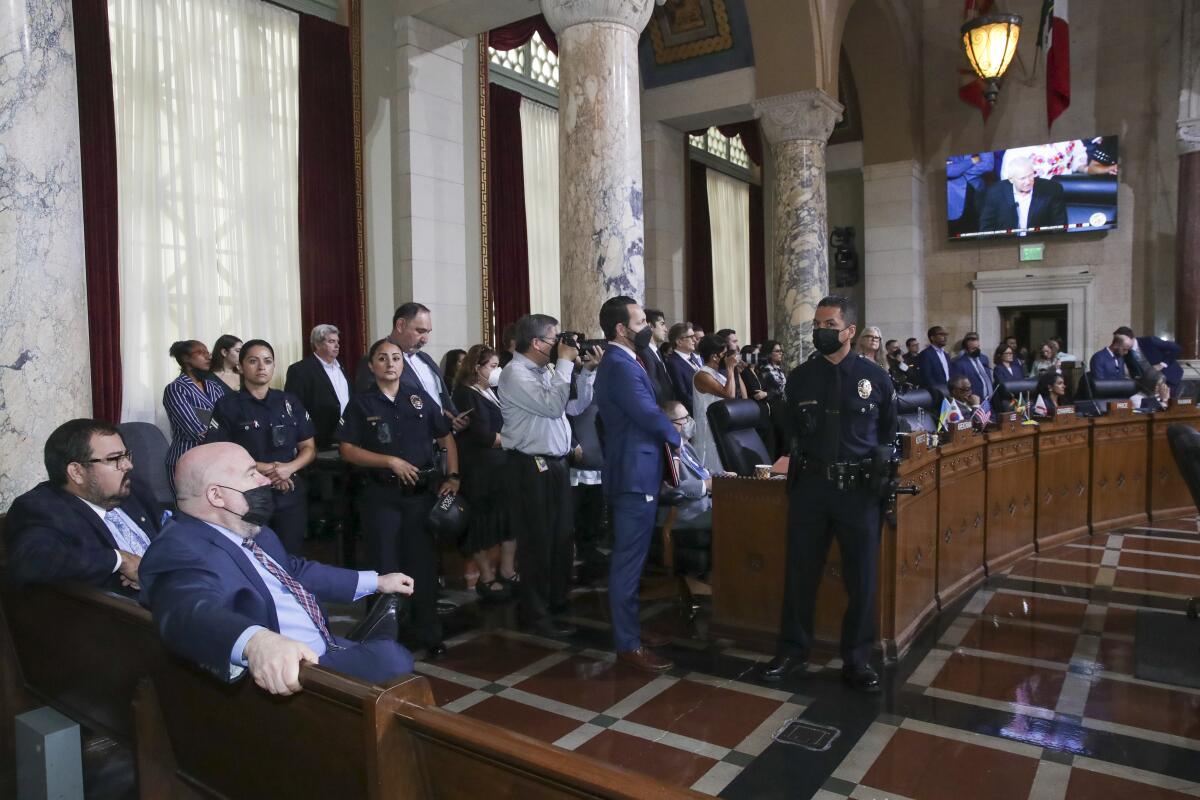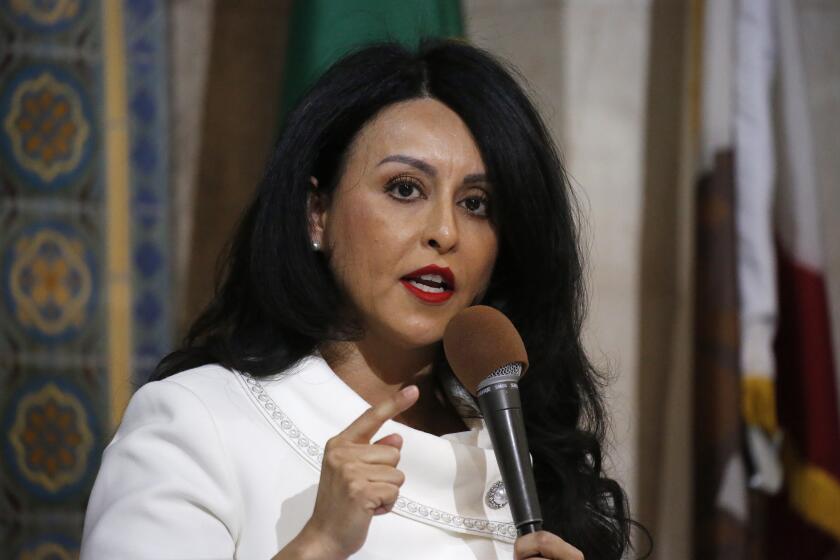The L.A. City Council members’ secret meeting was ugly. But it probably wasn’t illegal

- Share via
In addition to prompting widespread outrage, the revelation that members of the Los Angeles City Council exchanged racist jibes at a secret meeting with a top labor leader has led some Californians to wonder whether they crossed a legal line as well.
The Ralph M. Brown Act of 1953 guarantees the public’s right to observe its elected representatives as they deliberate and make decisions, with limited exceptions. And the three members who gathered last October were discussing something with a direct and significant effect on their constituents: the boundaries of new City Council districts, including how economic assets would be divided among districts dominated by Latino and Black residents.
The Brown Act was designed to be broad, extending to informal meetups as well as official sessions held at City Hall. But it doesn’t apply to every gathering of councilmembers. Instead, it applies to “any congregation of a majority of the members of a legislative body at the same time and location, including [by] teleconference ... to hear, discuss, deliberate, or take any action on any item that is within the subject matter jurisdiction of the legislative body” (emphasis added).
There are 15 members of L.A. City Council, so the three who attended the meeting at Los Angeles County Federation of Labor offices — then-President Nury Martinez, Kevin de León and Gil Cedillo — did not constitute a majority of that panel. Nor did the three serve together on any council committees, and only Martinez (who announced Tuesday that she was taking a leave of absence) and De León served on the seven-member redistricting committee.
Had two more members of the committee been present at the meeting, the topic being discussed certainly would have qualified for Brown Act treatment. At the time, the council was weighing whether and how to amend the district boundaries proposed by the citizen redistricting commission. The council approved an amended map in December.
Audio of Councilmembers Nury Martinez, Kevin de León and Gil Cedillo speaking with labor leader Ron Herrera quickly became a new and incendiary issue in the Nov. 8 election.
For the record:
1:15 p.m. Oct. 12, 2022An earlier version of this story said that council members could violate the Brown Act with a series of unannounced meetings that developed a “collective concurrence” among the council’s majority. The law changed in 2007 to prohibit such a series if a majority of council members discussed an issue within their jurisdiction, even if no consensus was reached.
The meeting also would have violated the Brown Act had it been one in a sequence of conversations involving a majority on the council or its redistricting committee. According to a presentation from the California League of Cities, such “serial meetings” could be a series of in-person meetings, phone calls or emails between a single member and his or her colleagues, or a “daisy chain” of communications from one member to the next.
There is no indication from the leaked recordings that the session at the L.A. County Federation of Labor was part of an improper series of redistricting discussions. The council voted 12 to 2 in November in favor of a draft of the amended map and 13 to 0 in December for final approval.
Had the October session been covered by the Brown Act, the councilmembers would have been required to post a notice of the special meeting on the city’s website, notify the media and alert the rest of the City Council at least 24 hours in advance, according to the First Amendment Coalition. The notice would have laid out an agenda for the meeting, and discussions would have been limited to items on the agenda. The meeting would then have been required to be open to the public, and the public would have to have been given the chance to comment.
State law provides limited remedies for meetings that violate the Brown Act. Officials can be charged with misdemeanors for participating, but any actions taken have to be challenged within 90 days of the closed meeting in order to be reversed.
About The Times Utility Journalism Team
This article is from The Times’ Utility Journalism Team. Our mission is to be essential to the lives of Southern Californians by publishing information that solves problems, answers questions and helps with decision making. We serve audiences in and around Los Angeles — including current Times subscribers and diverse communities that haven’t historically had their needs met by our coverage.
How can we be useful to you and your community? Email utility (at) latimes.com or one of our journalists: Jon Healey, Ada Tseng, Jessica Roy and Karen Garcia.
More to Read
Sign up for Essential California
The most important California stories and recommendations in your inbox every morning.
You may occasionally receive promotional content from the Los Angeles Times.















